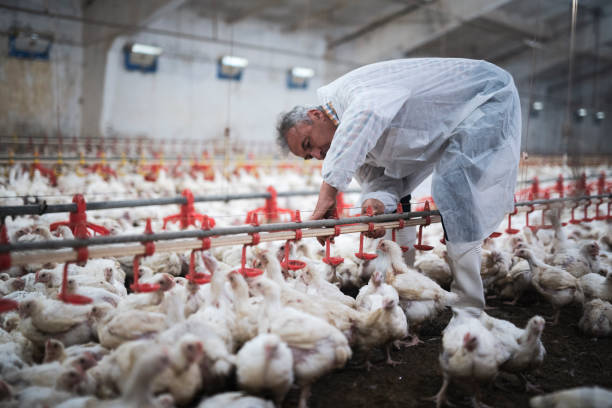When bad weather hits, your chicken coop ain’t just a shelter anymore—it’s what keeps your flock safe. Rain, strong wind, snow, or even a sudden cold snap can mess things up real quick. A small crack or a loose panel might not look like much. However, when the storm rolls in, those little things become big problems. The good part? With some fast action and a few basic tools, you can stop the worst of the damage. Whether it’s a storm, heatwave, or freezing night, this guide’s got some simple fixes to help your coop make it through. No stress, no big repair bills.
Reinforce Weak Spots Before the Storm Hits
Before bad weather arrives, inspect chicken coops for damage or weak spots. Pay attention to wobbly walls, cracked panels, or lightweight roofs. Reinforce corners and hinges using screws or L-brackets for added stability. Apply weatherproof caulk to seal small gaps and block incoming drafts. If a panel feels thin, nail a spare board over it for extra strength. Even duct tape works temporarily in a pinch. Remember, it’s easier to stop damage before it starts. A quick walkthrough and a few tools can prevent major problems and give you peace of mind as the weather rolls in.
Stop Leaks with Fast, Waterproof Fixes
Leaks cause more than puddles—they soak bedding, invite mold, and make chickens uncomfortable. Keep waterproof materials, such as roofing tape, plastic sheeting, or tarps, nearby. If water drips in, staple a tarp over the affected area or patch it with strong tape until a full repair is possible. Line the inside of the roof with a rubbish bag or plastic if needed. Don’t let water sit—wet bedding can chill your flock and damage their health. After the storm, dry everything out and replace soaked materials. Quick fixes during the rain make cleanup much easier later.
Keep the Wind Out Without Cutting Airflow
Wind can rattle panels, blow in rain, or worse—pull apart your coop. Use spare plywood, feed sacks, or even thick blankets to cover drafty areas. Focus on wind-facing sides, but keep some ventilation open to avoid moisture buildup. Outside, place bales or boards as windbreaks for extra protection. You can even lean old doors or wood panels against the coop temporarily. It doesn’t have to look perfect—it just needs to hold. Strong wind protection helps your birds stay calm and dry while reducing structural strain during storms.
Check the Roof—And Add Weight if Needed
Flat or poorly secured roofs are most vulnerable to heavy winds. Place bricks, sandbags, or even water jugs evenly across the top to add weight. Ensure your coop frame can handle the weight—spread it out so that no one area is overloaded. If your roof is thin or old, reinforce it from the inside using wooden planks. If it starts leaking or lifting during a storm, cover it quickly with a tarp. It’s also smart to keep a ladder nearby for quick access, but only if it’s safe to use. A solid roof keeps everything else intact.
Protect the Ground Floor from Flooding
Water rises fast sometimes. One minute, the coop’s dry, and the next, it’s a soggy mess. To stop this, dig a few shallow trenches around the coop. It helps move water away from the base. Add extra straw or dry bedding to absorb any damp spots. You can also place wooden slats or old pallets inside. That way, the chickens aren’t standing in wet litter. If your coop’s sitting flat on the ground, try lifting it with bricks or cinder blocks once the storm passes. Damp floors ain’t good for their feet. It can cause infections or worse. Dry floor, safe birds.
Secure the Doors, Latches, and Run Entry
Storm winds can blow a door wide open. That means cold air rushing in or even chickens getting out. Use extra rope, clips, or a bungee cord to keep doors closed tight. Don’t trust just one latch. Wind can shake it loose without warning. If your coop’s got a run, cover the open sides with boards or a tarp. Flying debris can hit hard. Also, once the storm ends, recheck all hinges and handles. Things get loose without you noticing. A few minutes of checking now can save a lot of panic later on.
Have an Emergency Kit Just for Your Coop
It’s smart to keep a small box of supplies just for coop problems. Fill it with items such as gloves, roofing tape, zip ties, tarps, and some spare bedding. Toss in a torch or headlamp, too. You’ll be glad you have it if the power goes out. Don’t forget clean water jugs and maybe a little first-aid kit in case a hen gets hurt. Keep it sealed in a dry bin close to the coop. That way, you can grab it fast. When stuff goes wrong, you won’t be hunting for tools in the dark. Being ready shows you’ve got your flock’s back, no matter what.
Storms are tricky, but they don’t have to catch you off guard. Even strong chicken coops can take a hit. But with a bit of prep and a few smart fixes, you can keep your birds safe. It’s not about doing it perfectly—it’s about being ready when it matters. Plan, act quick, and your chickens will be just fine, whatever the sky throws at them.






